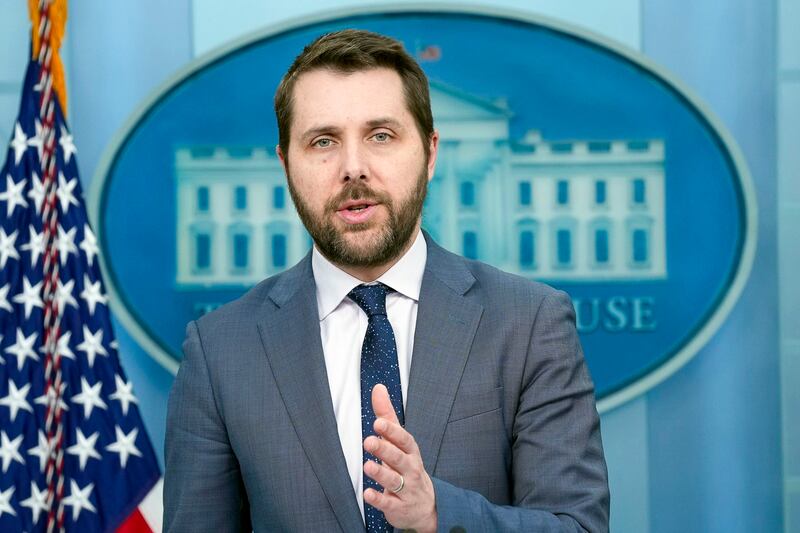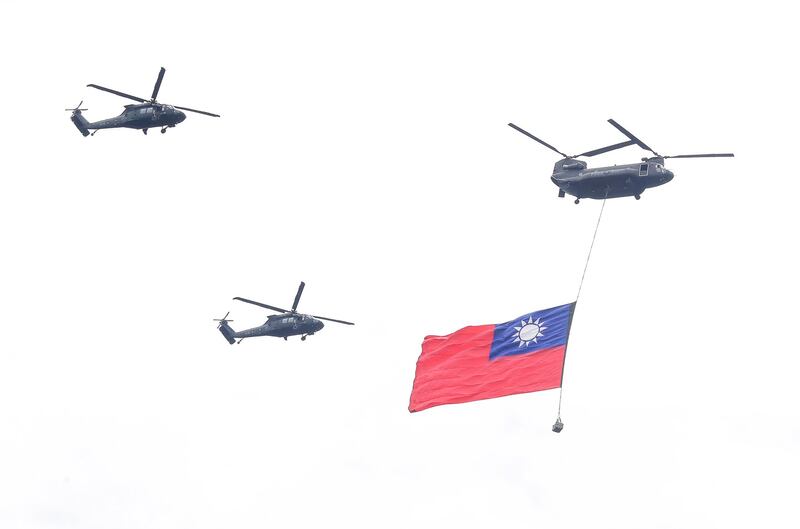UPDATED on May 15, 2024 at 6:50 p.m. ET.
U.S. President Joe Biden will send an unofficial delegation of former government officials to Monday’s inauguration of incoming Taiwanese President Lai Ching-te, the White House announced Wednesday.
A senior Biden administration official said the delegation would comprise former National Economic Council Director Brian Deese, former Deputy Secretary of State Richard Armitage and Brookings Institute fellow and former government adviser Richard Bush.
Laura Rosenberger, the current director of the American Institute in Taiwan, will also attend the inauguration, according to the official, who spoke on condition of anonymity according to pre-set rules.
The American Institute serves as the de facto U.S. Embassy on the self-governing island that China claims as its inalienable territory.

The White House official called Taiwan “a model for democracy not only in the region, but also globally” and said that the decision to send an unofficial delegation to the close U.S. ally was not unusual.
“For over 20 years, the United States has sent delegations comprised of former government officials to Taipei after the election,” the official said. “It is in keeping with our One China policy, consistent with the status quo and [there is] a long standing precedent to do so.”
The official noted Biden had sent similar delegations in April 2021, February 2022 and again following Taiwan’s election in January.
Lai, who has served as the term-limited Taiwanese President Tsai Ing-wen's vice president for the past four years, won the island's Jan. 13 presidential election, defeating two rival pro-Beijing candidates.
‘Beijing will be the provocateur’
Lai's inauguration comes at a time when the United States and China strive to keep alive a now nearly year-old thawing of relations that had threatened to spiral out of control following then-U.S. House Speaker Nancy Pelosi's controversial trip to Taiwan in August 2022.

Liu Pengyu, a spokesperson for the Chinese Embassy in Washington, told Radio Free Asia that China opposed the delegation and said the United States should exercise “extreme prudence” on Taiwan.
“The elections in Taiwan are the affairs of a region in China. China firmly opposes the U.S. having any form of official interaction with Taiwan and interfering in Taiwan affairs in any way or under any pretext,” Liu said. “We urge the U.S. to have a clear understanding of the extreme complexity and sensitivity of the Taiwan question.”
But the White House official said Beijing had nothing to fear.
“The inauguration is part of a normal routine democratic process, as is our sending of this delegation. Beijing will be the provocateur should it choose to respond with additional military pressure or coercion,” the official said. “This is all part of a normal, routine process.”
The United States stood by its neutral stance on the ultimate sovereignty of Taiwan, the official added, maintaining only that Beijing and Taipei should work out their differences without conflict.
“We do not take a position on the ultimate resolution of cross-strait differences provided they are resolved peacefully,” the official said.
Edited by Malcolm Foster. Updated to include comments from the Chinese Embassy.
